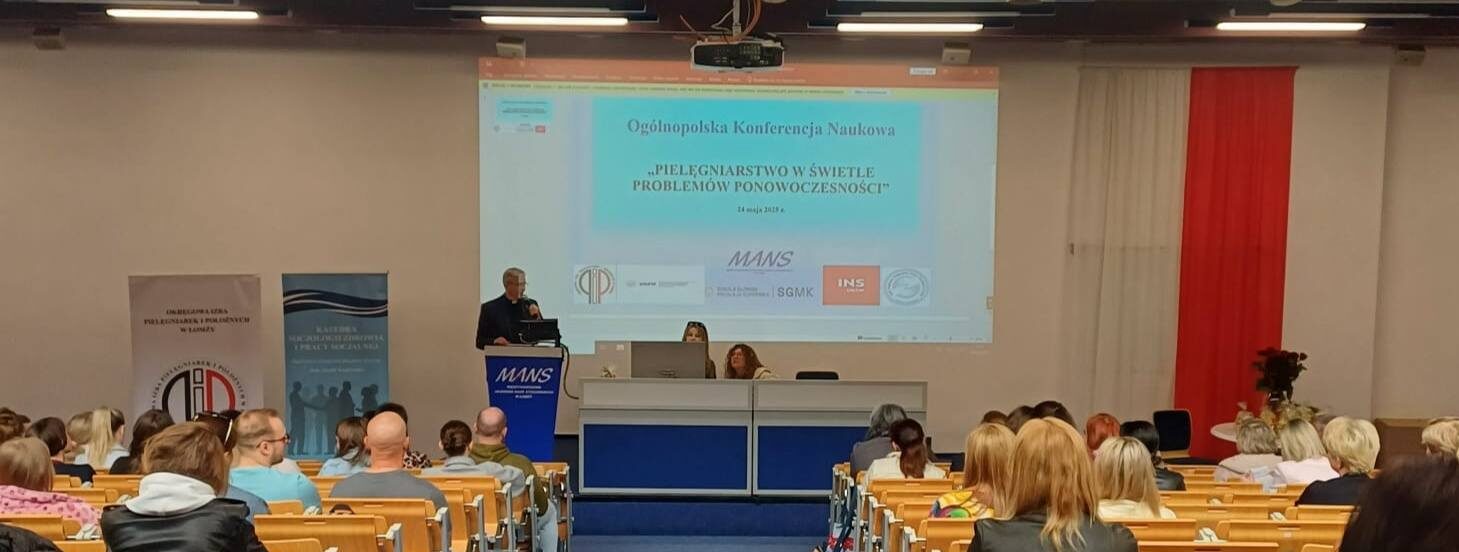The Nicolaus Copernicus Superior School co-organized the nationwide scientific conference “Nursing in the light of postmodern challenges” held on May 24 in Łomża.
The event was prepared in cooperation with the International Academy of Applied Sciences in Łomża, the National Chamber of Nurses and Midwives in Łomża, Cardinal Stefan Wyszyński University, and the UKSW Social Work Student Research Club.
The conference brought together a wide range of experts, practitioners, and students interested in contemporary challenges in nursing and healthcare. During the plenary and thematic sessions, issues such as public health, health education, ethical dilemmas in nursing, and the impact of modern technologies on everyday professional practice were discussed.
In a letter addressed to the organizers and participants of the conference, Prof. Gertruda Uścińska, Rector of the Nicolaus Copernicus Superior School, emphasized the growing role of education in shaping public health:
“The 21st century brings us challenges that require a new perspective on the role of education in shaping public health. Public health should no longer be understood merely as the absence of disease, but as a common good—dynamic, multidimensional, requiring constant social dialogue and modern education.”
The SGMK rector also pointed out that one of the key problems in today’s health education is the crisis of trust in scientific and specialist knowledge. In this context, the role of nurses cannot be overestimated – they are not only caregivers, but also educators and guides in the complex world of health issues.
As Prof. Uścińska emphasized, today more than in the past, the nursing and midwifery community is becoming a missionary profession – reaching places where other state structures fail. “A postmodern nurse is not only a person performing medical procedures – she is a leader of change, an ambassador of health, and often the only health authority in a small, local community.”
The conference was an important platform for the exchange of knowledge and experience, as well as an opportunity to reflect on the role of nursing in a dynamically changing society. The organizers expressed their hope that this event would be the beginning of a broader debate on modern health education and the social role of medical professions.




